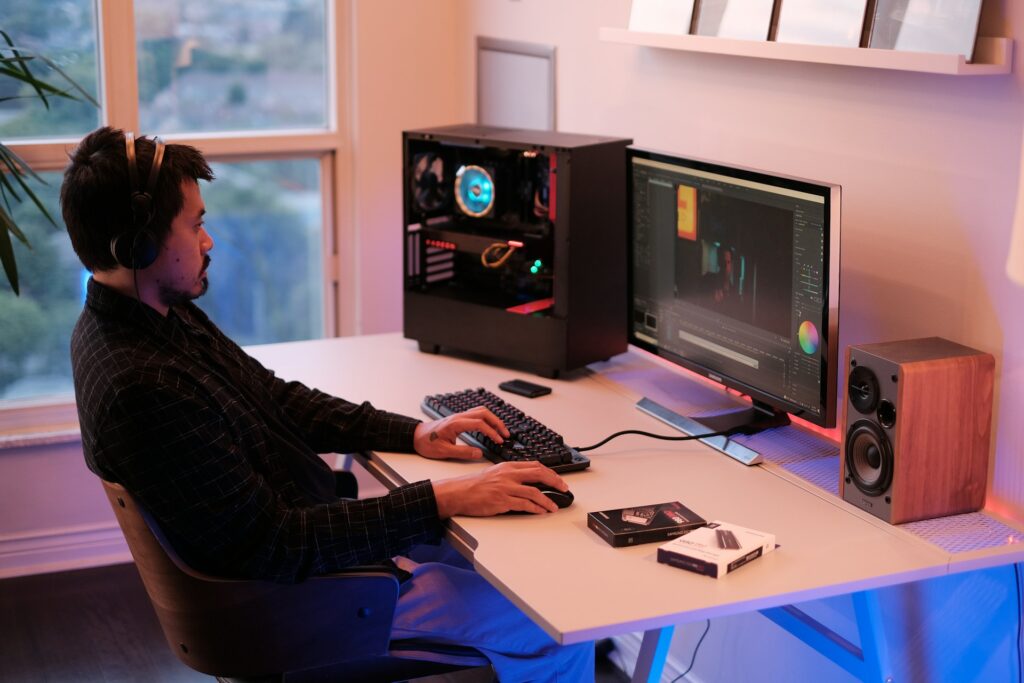Learn about What Does Computer Technology Do. Explore the world of computer technology, including hardware, software, networking, and multimedia.
Introduction
Computer technology is the process of developing systems and putting them into use for processing, storing, and manipulating data by computers and other associated devices with the help of designed processes.
Computer technology includes a wide branch of fields including computer hardware (the physical devices), software (the programs and applications), and the network that connects different devices.
Computer technology has made a big difference in every dimension of modern life, from personal computing, human-like and artificial, advanced to new levels of computer cloud.
As computer technology advances in speed, efficiency, and functionality, it develops and changes all industries, enhances all aspects of communication, stimulates all productivity, and transmutes the way people work and live.

What is Computer Technology?
Computer technology includes designing, building, and programming computers along with a network of systems. It combines various components, including hardware, software, and networking, making it the fundamental infrastructure behind modern digital interactions and innovations.
What Does Computer Technology Include?
- Hardware: Those pieces include the hardware parts of the computer, mainly the central processing unit (CPU), random access memory (RAM), and periphery devices of a monitor, keyboard, etc.
- Software: Programs and applications: those programs allow the computer to run on this, such as an operating system to more specialist ones like the word processor, and graphic tools.
- Networking: Systems that connect multiple computers, which allows for communication between different computers so data can be shared over the internet and on local networks.
- Storage: Storage devices holding information; examples include hard drives, solid-state drives (SSDs), cloud storage, and any other means by which data is kept long-term to retrieve it later.
- Multimedia: Technologies dealing with graphics, audio, and video content for the production and manipulation of digital media, which enables various applications in entertainment, education, and business.
- Communication: The tool of digital communication, including emails, social media platforms, video conferencing, instant messaging, and so on.
What Does Computer Technology Do?
Computer technology influences almost every activity in modern life, transforming how we work, communicate, and interact. It allows the creation and development of computer systems, networks, and even robots.
This allows us to automate work and optimize various processes. It supports personal health management in healthcare through wearable devices and apps, which track a person’s physical activity and vital signs. Moreover, it also enables telemedicine, providing people with access to remote healthcare.
Computer technology enhances education, making the process of language learning interactive using tools like virtual classrooms and artificial intelligence-based platforms for practicing a foreign language.
It is further applied in analyzing huge data so that computing machines help analyze lots of information about businesses and provide valuable insights across the sectors: finance, marketing, and more research-based firms.
Finally, computer technology leads to innovation by making the processes of daily tasks more efficient, encouraging communication, and opening doors for new opportunities in many fields.
Jobs Related to Computer Technology
A wide variety of career paths stem from computer technology, including:
- Computer Specialist: An IT professional is someone whose specialty is optimizing computer systems, hardware, and software for businesses and individuals.
- Computer Systems Analyst: Specialists who appraise and design a technology system to create efficiency and increase productivity within an organization.
- Database Administrator: Professionals who are entrusted with the safe and efficient storage of large data quantities.
- Information Security Analyst:S Specialists who secure and safeguard systems and networks against cyber threats by ensuring data confidentiality and integrity.
What is the role of a CPU in computer technology?’
The CPU is known as the brain of a computer and carries out instructions that run all the operations in a system. It takes input data, follows instructions to process the information, and makes it ready for action.
It coordinates and manages the operations involved in the execution of commands, management of operations, and control of communication between hardware components. It consists of multiple cores, each able to execute instructions in parallel. This significantly increases processing speed and multitasking ability.
The CPU is highly interlinked with memory (RAM) for the retrieval and storage of data necessary for continuous processes. The clock speed is measured in gigahertz, and it states how many instructions can be executed in a single second.
The CPU is a very important aspect of computer technology since it happens to be the primary component that interprets and executes software commands, and in the process, its impact happens to be instant on the performance of a system.
What is the impact of social media on computer technology?’
Social media has had a significant impact both on the use and development side of computer technologies. The birth of social networking sites has developed computer hardware and software and all network infrastructures to cope with the constant demand for time-to-time instant communication and real-time data.
With increasing usage of social media, they have demanded stronger processors, more effective storage solutions, and faster internet connectivity, resulting in innovations in computing technologies, such as cloud computing, artificial intelligence, and data analytics.
Social media has also led to the further boundaries of developing software in regards to tools for content management, user interface, and social networking. Another role is that big data and machine learning algorithms accelerate the usage of big data to analyze user behavior and provide personalized experiences.
Social media has also increased security concerns, which has triggered the design of new cybersecurity measures for the protection of data users. Overall, social media shapes and propels the development of computer technology.
Pros of Computer Technology
1. Access to Information
Computer technology lets one access an enormous amount of information instantly. Be it the internet or databases, it has equipped individuals to find resources, research topics, and stay updated efficiently. It enhances knowledge dissemination and supports processes in decision-making in every field of endeavor.
2. Increased Productivity
Computer technology helps boost productivity because it automates tasks and streamlines workflows. Tools such as word processors, spreadsheets, and project management software make the work easier to do, with fewer errors and better teamwork collaboration, which helps complete work more quickly and overall performance in a variety of industries.
3. Efficient Data Management
Computer technology makes handling vast amounts of data easier to deal with. The advanced tools enable better data storage, organization, retrieval, and analysis while making sure record-keeping is correct and proper information is gained in decision-making processes. Therefore, this increases good resource utilization and minimizes the inefficiency in operations.
4. Cost Efficiency
The cost of labor decreases while minimizing the possibility of error. Computers make an organization operate optimally by eliminating repetitive work through automation, which reduces manual effort and provides scalable cloud storage. Consequently, businesses will save time and resources, making profitability maximum.
5. Automation
Comput technology reduces the intervention of manual effort in the repetition of work. Industrial robots, for instance, improve efficiency and minimize human error. The freed-up time of the employee allows them to concentrate on creative or strategic work that brings about innovation and increased productivity.
Cons of Computer Technology
1. Health Issues
Extensive computer usage has numerous health effects: for instance, eye strain, back pain, and stress injuries through repeated straining in the muscles. Prolonged staring at the screen and poor posture can also cause headaches and disturb one’s sleep, in turn, affecting well-being on a general scale.
2. Privacy
Computer technology raises a lot of privacy issues with increased data sharing. Data in computers can easily become vulnerable to hacking, identity theft, and unauthorized access. This requires extra security measures in the handling of sensitive data from cyber crooks so that users’ privacy is not infringed upon.
3. Digital Divide
The digital divide means the difference in access to and use of modern computer-based technology by others. It usually limits education and employment opportunities while limiting social access, especially within the less developed communities or the developing regions as a whole with limited access to the internet or devices
4. Dependence on Technology
Overdependence on computer technology makes one miss basic skills such as problem-solving or critical thinking. When the computer fails or is not available, it disrupts daily activities and creates challenges in industries that highly rely on digital systems for their operations.

5. Technology Can Be Distracting
Computers, on the other hand, provide many benefits but are also a distraction. Social media, games, and non-work-related websites will often distract someone from focusing and can reduce productivity. Too much screen time is often a distraction and can result in procrastination and the inability to finish tasks quickly.
FAQs
What is a firewall in computer technology?
A firewall is a safety device that scans and controls network traffic flow to allow or block data according to set security standards to prevent the system from being accessed by unauthorized individuals and cyber attacks.
What is a user interface (UI)?
UI is the visible aspects of a software application or website with which the user interacts; it can include buttons, icons, menus, and layout. It assists the user in finding his or her way in and around the system.
What is an API in computer technology?
An Application Programming Interface, short for API, refers to a set of rules and protocols that enable two or more software applications to interact to share data and functionalities in seamless harmony.
Conclusion
In the modern world of interconnectivity, computer technology is a force driving many different industries. It shapes our digital experiences, from personal health management to designing complex networks. There are diverse career opportunities in this field, and it is pivotal to modern life and the workforce.






